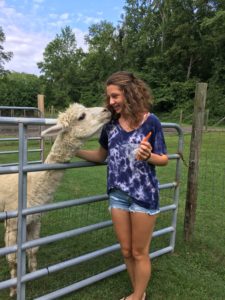Main Content
Odds are as an animal science club member, you have thought about a future career in animal science. Perhaps you are thinking about being a veterinarian? But even if you are not thinking about a STEM career, taking a scientific outlook on life makes the world a more interesting place.
This month we are going to kick off a series of posts on what is it like to be a scientist and the habits of mind that scientists use to do their work. You have probably heard about the “scientific method” in school. It is often presented as a linear set of steps that include 1) make an observation, 2) form a hypothesis, 3) perform the experiment, 4) analyze the data, 5) report your findings, and 6) share your conclusions. When discussed this way, scientific thinking sounds complicated and perhaps difficult.
Although you may not even realize it, you are probably already use scientific ways of thinking in your everyday life. It is not as complicated and difficult as you think!

For example have you ever….
- Observed something that surprised you and tried to figure out how it happened? Perhaps you wondered about a new behavior you notice with your dog or cat.
- Sought out more evidence or information about the surprising observation? Maybe you read a book or asked a friend or your vet about the behavior.
- Come up with a new explanation based on your observation? Based on what you learned, you have a new understanding of your pet’s behavior.
You can work on developing your scientific thinking skills in your everyday life. Please check out these tips from the Understanding Science website, developed by the University of California Museum of Paleontology.
Often times, even when we use all of these tips and strategies we don’t always get the answers we seek. The good news is… you learn a lot in the process. Scientific investigations often lead in unexpected directions and don’t have neat and predictable outcomes, but that is what makes it fun and exciting. Next time we will exchange ideas about managing group work in club meetings.